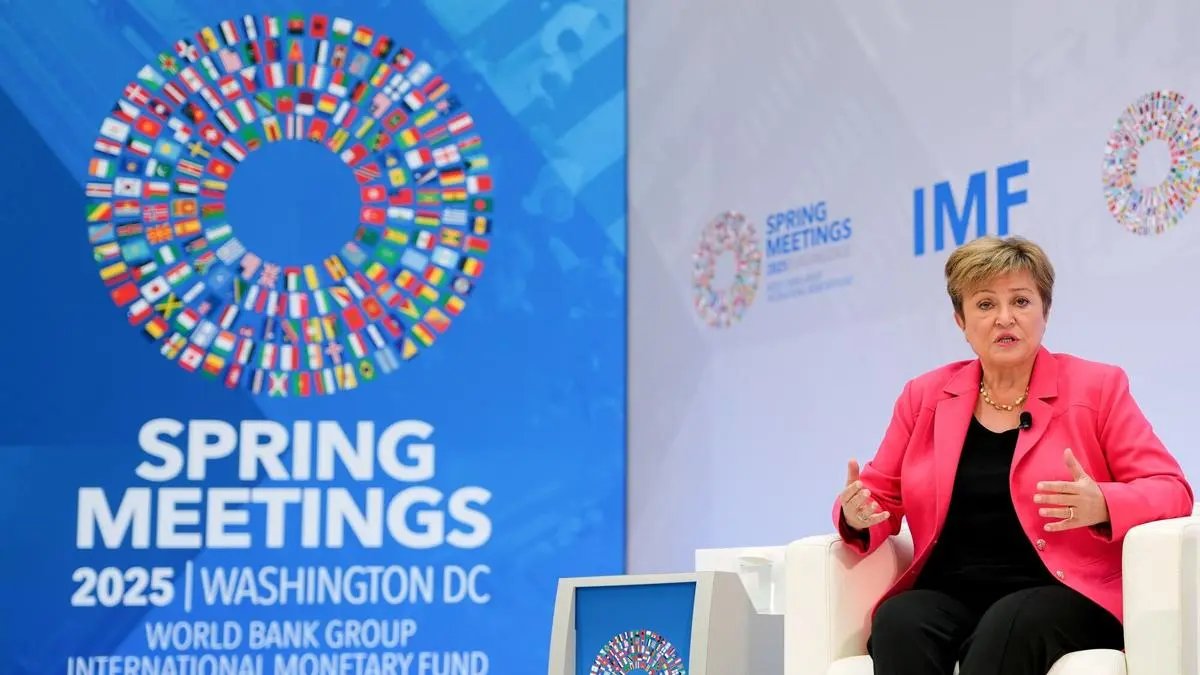IMF expects ‘notable markdowns’ in growth forecasts, but no global recession


Kristalina Georgieva, managing director of the International Monetary Fund (IMF), during a curtain raiser speech ahead of the International Monetary Fund (IMF) and World Bank Spring meetings at the IMF headquarters in Washington, DC, US, on Thursday.
| Photo Credit:
KENT NISHIMURA
International Monetary Fund (IMF) on Thursday said global economic growth is going to witness ‘notable markdowns’ but stopped short of predicting a recession. This was part of a curtain raiser before IMF comes out with growth forecast for the world during its spring meeting on April 22.
IMF Managing Director Kristalina Georgieva said: “Our new growth projections will include notable markdowns, but not recession. We will also see markups to the inflation forecasts for some countries.”
Talking about tariff tensions, she presented three observations. The first — uncertainty is costly. The complexity of modern supply chains means imported inputs feed into a broad range of domestic products. The cost of one item can be affected by tariffs in dozens of countries. “In a world of bilateral tariff rates, each of which may be moving up or down, planning becomes difficult. The result? Ships at sea not knowing which port to sail to; investment decisions postponed; financial markets volatile; precautionary savings up,” she said, adding that the longer uncertainty persists, the larger the cost.
Growth upfront
Second, rising trade barriers hit growth upfront. Tariffs, like all taxes, raise revenue at the expense of reducing and shifting activity—and evidence from past episodes suggests higher tariff rates are not paid by trading partners alone. Importers pay some part through lower profits, and consumers pay some part through higher prices. By raising the cost of imported inputs, tariffs act upfront. Of course, “if domestic markets are large, they also create incentives for foreign firms to respond with inward investment, bringing in new activity and new jobs. This, however, takes time,” she said.
Third, protectionism erodes productivity over the long run, especially in smaller economies. Shielding industries from competition reduces incentives for efficient resource allocation. Past productivity and competitiveness gains from trade erode. Entrepreneurship gives way to special pleadings for exemptions, protection, and state support. This hurts innovation. But again, if domestic markets are large and domestic competition is vibrant, negative effects can be mitigated.
“Ultimately, trade is like water: when countries put up obstacles in the form of tariff and nontariff barriers, the flow diverts. Some sectors in some countries may be flooded by cheap imports; others may see shortages. Trade goes on, but disruptions incur costs,” Georgieva said.
Though, she ruled out recession, but she said IMF will caution that protracted high uncertainty raises the risk of financial market stress. Taking note of unusual movements in some key bond and currency markets earlier, she said: “how, despite elevated uncertainty, the dollar depreciated, and US Treasury yield curves ‘smiled’—it is not the sort of smile one wants to see.” Such movements, according to her, should be taken as a warning. “Everyone suffers if financial conditions worsen,” she said.
Published on April 17, 2025



